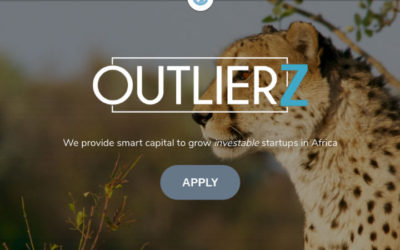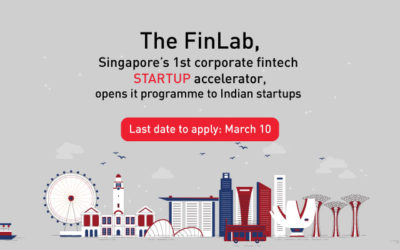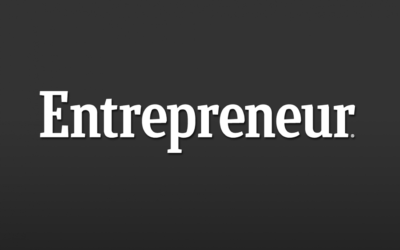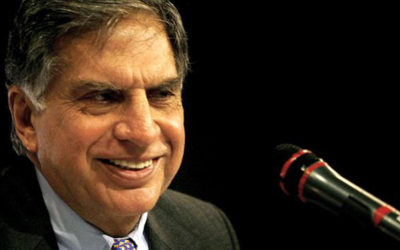Moroccan fund launches to help African startups
Moroccan fund launches to help African startups.
Morocco-based seed fund Outlierz, has launched and aims to provide smart capital to African startups.
The organisation looks at startups with an MVP or an executable prototype, who are in the pre-seed or seed stages.
They should also have a ticket size between US$50 000 to US$200 000.
Startups also looking to raise seed or Series A round funding are also eligible.
Outlierz will also provide startups training tools, such as advice and access to its network.
“We started from a simple yet striking conclusion: too many startups fail at the pre-seed and seed stages because of a lack of appropriate resources.
We intend to change that by providing smart capital to the continent’s most promising companies,” says founder and managing director of Outlierz, Kenza Lahlou, in a press release to Ventureburn.
“The target outcome will be a stronger pool of high potential startups that are ready for subsequent investment and, in the end, lead to success stories that are uniquely African.” The fund is backed by Angel and VCs, such as the CEO of YCombinator, Michael Seibel, 500startups MENA partner, Hassan Haider, and tech entrepreneurs from Africa and Morocco.
Those looking to apply can do so through the Outlierz website.
Malaysian co-working space scores funding from 500 Startups, other investors
Malaysian co-working space scores funding from 500 Startups, other investors.
“Entrepreneurship is at an all-time high, and young founders are turning to co-working to tap on the vast networks available,” 500 Startups managing partner Khailee Ng says in a statement.
Worq’s first outlet, located in shopping mall Glo Damansara, will house 400 members – businesses, organizations, entrepreneurs, and freelancers.
Its membership options include hot desks, dedicated desks, and private rooms, with a host of amenities.
Rates start at US$2.25 a day.
“Malaysia is a great place to build this community due to the amount of entrepreneurship spirit inherent in our culture.
Years later, my father inherited an indebted family business at the age of 23.
With the support of his mentors and friends, he revived it and repaid all of its creditors,” recalls co-founder Stephanie Ping.
“If it were not for the support of his business community, he would not have been able to create a decent living for himself and his family,” she adds.
With the funding, Worq aims to be a dominant player across Southeast Asia.
Snap IPO Share Price Estimates And Financials
This article on Snap (Pending:SNAP) is intended to be in a similar vein to the analysis I did for Twilio (NYSE:TWLO) prior to its final IPO share price filings and subsequent trading.
For Twilio, I wrote a piece estimating its IPO share price (I estimated a filing range of $16-$18 with post-IPO pop to $24+; TWLO later filed with an initial IPO price range of $12-$14, ultimately offered IPO shares at $15, which then traded up to $28 to close first day).
Impressive User Base, But Growth Slowing And Young Users Cost A Lot To Acquire And Addictive High Engagement Costs a Lot to Service Today, Snap has 158M daily active users (DAU) who spend on average 25 to 30 minutes a day sending on average 16 snaps a day (2.5B snaps sent daily), with 25% of users posting daily to their stories.
At its IPO, Facebook had 526M daily active users, growing 9% quarter over quarter, which was built on a cumulative invested capital base at IPO of $3.5B, or $7 of invested capital per daily user.
However, Snap revealed a rapidly slowing quarterly growth of 4% in most recent Q4, and it took Snap $2.7B of cumulative invested capital to accumulate this base, or $17 of invested capital per daily user (2.6x the cost of Facebook’s base and 1.7x the cost of Twitter’s).
Snap Valuation History And My IPO Share Price Estimates Snap’s valuation history is mouthwatering: 2-3 years after founding, the company raised $80M at an $800M valuation from IVP in June 2013.
Getting to per-share estimates, Snap has around 1.1B shares, so a $25B valuation expectation would suggest a post-offering/trading share price of around $22.
Applying an underwriter’s 15% IPO offering discount would suggest to me Snap could file an amended S-1 with a filing range of $18-$19 per share, if it intended to aggressively follow through with this early press messaging on valuation expectations.
To estimate a general 2017E revenue growth, I assumed 3.5% to 4.0% quarter-over-quarter daily user base growth in line with Q4 ’16, which gets to ending 2017 daily users of 183M, up 15% year over year.
I also assumed 20% quarter-over-quarter ad revenue growth per daily user (slightly below Q4 ’16 growth of 24%) through full-year 2017, which results in Q4 ’17 quarterly revenue per daily user of $2.19, up 110% over Q4 ’16 actuals of $1.04.
Are You a Procrastinator? Here Are 5 Ways to Be More Decisive.
This happens when you overanalyze a problem too much, searching for a perfect solution that simply isn’t there.
Unfortunately, such options aren’t realistic, so we’re left instead with a handful of options that aren’t particularly good or bad.
Instead of trying to finalize your decision right away, commit to making some kind of progress with your decision.
An example: If you can’t decide what to write about for your next blog post, write down a handful of potential ideas.
This will allow you to follow your instincts and delay the finality of your decision, but will also force you to take a step closer to that ultimate goal.
As a business owner, inflating your expectation of risk can make you worry excessively about how your decision might be wrong — no matter what choice you make.
Realizing this, you might try to compensate for your overinflated anticipation, and normalize your thought patterns.
Going over your choices in your head for the millionth time isn’t going to make you feel any better about your decision, one way or another.
This can reduce your anxiety and help decompress your brain so you find clearer solutions, and faster, when you return to your normal state of mind.
With these strategies, you aren’t guaranteed to overcome analysis paralysis or transform yourself into a more decisive entrepreneur, but you will be more comfortable with your decision making, and make progress toward becoming a stronger leader.
Dutch tech hub is facilitating the next Google
Dutch tech hub is facilitating the next Google.
Amsterdam is one of Europe’s fastest-growing hubs for IT startups, and TQ is supporting some of them through the hardest stage of any startup.
The city is made for a bustling tech community, said Robert Gaal, managing director of TQ.
“Amsterdam offers startups a lot of talent, from the local universities, as well as international talent.
TQ was previously based in Rotterdam, but many of the startups found themselves having to spend time in Amsterdam because people from abroad usually travel there first.
That’s why we wanted to move there,” said Willem Van Roosmalen, co-founder of Homerun, one of the TQ residents.
According to a Dutch government and private sector initiative called StartupAmsterdam, there are more than 800 startups located in the Dutch capital.
“We are now in the stage of finding how our product fits in the market.
It’s about figuring out how to make your business sustainable,” said Stefan Fountain, founder of PR.co, another TQ resident.
Once you have a repeatable model, you’re ready to scale.
Why Digitization is the Future of Consumer Financial Services
Of the unbanked, 90% have a mobile phone (73% of those are smartphones), but only half currently use mobile banking and mobile payments.
Mobile is contributing to economic and social development across the globe, delivering financial inclusion to unbanked populations with 270 live services in 90 countries as of December 2015 according to GSMA Mobile Economy Report.
Here’s why the adoption of mobile banking will continue to grow: Convenience An emerging focus for startups, established institutions, and policy makers is to facilitate access to new payments providers in a way that boosts competition while also creating greater choice and convenience for the end user.
“All users have to do to pay a bill, purchase a good or service, or transfer money is reach in their pocket,” says Rodrigo Teijeiro, CEO and Founder of RecargaPay, a mobile payments platform.
They are no longer required to bother with kiosks or cash point top ups.” Reduction in fees.
When checking account balances and recent transactions, 94% of mobile bankers use mobile platforms.
But many consumers don’t even need to take it upon themselves to check their balances; many services offer SMS alerts when your account is low or there is a suspicious charge.
They are also empowered to check their accounts frequently, in theory avoiding the nuisance of overdraft fees, fees to pay bills, etc.
“We’re able to launch updates with incredible speed and therefore serve our customers more quickly and effectively than most banks.” Millennial Influences From when they’re getting married, to desired workplace structure, to political influences, millennials are constantly discussed and researched.
The consumer desire for instant gratification and convenience, coupled with the steady increase of mobile devices and IoT, positions mobile banking platforms to grow exponentially in the coming years.
Why Moses Is the Best Real Estate Developer Ever
You too may be a visionary in the making.
A product idea arises because the entrepreneur sees people struggling, notes inefficiencies and detects a trend in demand.
For such insights to become products, and products with market demand, many people have to understand the value.
Take the Old Testament story of the Promised Land.
Again, a visionary is a mere mortal with an insight they communicate well.
Moses inherited the Promised Land insight, and made it a shared vision for the Israelites.
Steve Jobs was no Moses, but he was a visionary.
These were just insights.
But Jobs knew how to communicate his vision and make Apple and the world embrace the approach.
Once you have your product idea locked into your mind, spend a lot of time trying to tell its story.
Indian Fintech startups can now get unparalleled access to most of the world’s markets for growth and expansion
Indian Fintech startups can now get unparalleled access to most of the world’s markets for growth and expansion.
If India’s Fintech startups had to handpick a few factors that would enable them to expand their business, the list would look something like this: access to global markets; mentors from the finance and venture capital sector; and connections with the right people – from businesses to government agencies.
Singapore-based FinLab opens its accelerator programme to Indian Fintech startups Meeting these requirements of the startup community is The FinLab, which is opening its accelerator programme to Indian startups.
A joint venture between United Overseas Bank Limited (UOB) – a leading bank in Asia, and Singapore Innovate (SGI) – a Singapore Government agency that connects entrepreneurs with industry mentors, venture capitalists and research talent – The FinLab focuses on accelerating the development of Fintech startups.
Investors, business partners, and government agencies, who are all part of The FinLab’s broad networks, can help startups make meaningful connections in the region and scale their businesses faster.
The FinLab runs its programme at BASH, a vibrant co-working space in JTC Launchpad, otherwise known as Singapore’s startup hub, and sometimes called the Silicon Valley of Singapore.
Being a part of BASH means getting to be a part of a thriving one-of-a-kind startup community and ecosystem.
Here’s how you could be a part of The FinLab If you are a Fintech startup in areas including but not limited to the following: Blockchain Applications, Security & Encryption, Data Analytics, Risk & Wealth Management, Mobile Banking Solutions, and SME Solutions – then The Finlab’s acceleration programme may just be the thing your business needs.
The FinLab’s acceleration programme is designed to help selected Fintech startups like yours validate business assumptions and product-market fit, improve business and revenue models, while accessing investor and resource networks that will be crucial for your future growth and expansion.
Apply today.
Rough Day at Work? Exercise and Sleep Are the Best Ways to Shake It Off.
Exercise and Sleep Are the Best Ways to Shake It Off.. We all have those days when the stresses of work follow us home.
But a recent study published in the Journal of Applied Psychology has found that two simple activities — exercise and sleep — can go a long way toward not only making you feel better, but also making sure that your bad day doesn’t affect your home life.
Researchers from the University of Central Florida, the University of Illinois and the University of Wisconsin asked 118 MBA students with full-time jobs to wear activity monitors for a week.
They also surveyed the people whom those participants lived with.
They found that participants who took a daily average of 10,900 steps were less likely to take out their frustrations on their loved ones than those who took an average of less than 7,000 steps a day.
The authors recommended activities such as walking and swimming.
The researchers also identified a link between engaging in activity and feeling rested the next day, noting that “workplace undermining is associated with poorer (perceived) sleep quality and, in turn, greater home undermining, but only among individuals who reported exercising less, took comparatively fewer steps each day and expended less energy.” In other words, those who exercised found they got a better night’s sleep, and those who slept better were less likely to have their work issues spill over into their home life.
If an employee has “been belittled or insulted by a supervisor, they tend to vent their frustration on members of their household,” UCF College of Business management professor Shannon Taylor explained in a release accompanying the study.
“Our study shows that happens because they’re too tired to regulate their behavior.” Get a good night’s sleep, get some fresh air and get active.
Your employees, colleagues and especially your loved ones will thank you for it.
Why Corporate Collaboration Tools are Fundamentally Flawed
Facebook Workplace and other popular corporate collaboration tools, such as Yammer, Slack, Skype, WhatsApp and Salesforce Chatter, all promise a kind of magic bullet for today’s geographically diverse workplace.
And, if the goal is easier communication and a more modern channel for information sharing, then these tools can achieve some measure of success.
A recent article in CIO featured efforts by skincare company Rodan & Fields to improve internal collaboration by using Facebook Workplace.
And the right collaboration tools will increase productivity by instilling positive changes in how people work and by fundamentally changing the corporate culture.
To be effective, collaboration platforms require a real evolution in the overall workplace culture.
Management should move beyond static business silos to support the healthy sharing of new ideas across diverse project groups.
Collaboration should increase workforce unity.
Popular new tools such as Slack, Hipchat and Microsoft Teams have taken a chat-based approach to collaboration.
Physical office spaces provide yet another way for bringing people together.
Sometimes, locating people from different departments within the same office space stimulates fresh thinking and enhances collaboration.
What Any Startup Can Learn From This 1 Company That’s Scattered Across 11 Time Zones
What Any Startup Can Learn From This 1 Company That’s Scattered Across 11 Time Zones.
Providing the best level of service possible may require developing new physical locations or hiring employees in other time zones.
That’s the approach that the domain name company, Namecheap, takes, hiring talent from around the world whenever the company expands.
Awareness of time zones The team at Buffer developed a tool that tracks team performance across time zones.
A tool that’s similar to what Buffer uses is Every Time Zone, which allows companies to easily keep track of time differences across their various time zones.
Handling out-of-sync discussions Buffer has several tools it uses, like HipChat, to engage employees whose schedules are synched-up.
But it also has a lot of team members with schedules that don’t always align, so it needs tools that also allow for “respond as you go” interactions among teams.
Trello and Hackpad are great tools, as is Slack for archived discussions.
Emphasizing communication With employees spread across so many time zones, Buffer requires a great amount of clarity in communicative processes.
It’s the stuff that keeps teams working in unison, despite the fact that they live halfway around the world.
How a hot shot teen ‘growth hacker’ made startup HashChing $7m
Short on funds for marketing the company HashChing advertised for a so-called ‘growth hacking’ event, and Vigder got in touch. “Tamir approached us and started calling me the next day.
He said he was a great growth hacker and he chased me every day asking how his application was going,” HashChing chief executive Mandeep Sodhi recalls.
He knew about HashChing and our capital raise, and details about the business none of the other participants knew.
It went viral with 500,000 views on YouTube within 24 hours, dramatically raising the startup’s profile and generating $70 million in home loan applications.
With nothing to do in his spare time, he made the unusual decision to go to as many business conferences and startup meetups as possible.
I called CEOs and investors, and I just wanted to learn as much as I could,” he tells The Australian Financial Review. “I called Mandeep for the first time at 10pm one night and just said I could help them grow.
Don’t spend all the money on the initial launch or on unnecessary things.
Spend the least money you can, and then invest in the product.
Why Initial Public Offerings Will Rebound in 2017
Why Initial Public Offerings Will Rebound in 2017.
But market participants expect a rebound in 2017.
“Last year was an aberration because of the way the stock market behaved,” says David Erickson, a senior fellow and lecturer in the finance department at the University of Pennsylvania’s Wharton School and a former co-head of global equity capital markets at Barclays.
The biggest U.S. IPOs last year were executed by Chinese logistics company ZTO Express, raising $1.4 billion; retirement-service company Athene Holding, $1.1 billion; and real-estate investment trust MGM Growth Properties, $1.1 billion.
“The IPO market typically lags the performance of public indexes,” Erickson says.
“Investors don’t want to buy companies without a track record if they’re losing money on companies that do have one.” All that doesn’t explain what Renaissance Capital, an IPO research firm and money manager, calls in a recent report “the 800-pound gorilla still in the room: the two-year drought in technology IPOs, the bread and butter of the market.
These companies include payment processor TransFirst and security software vendors Blue Coat Systems and Optiv Security, all of which had filed for IPOs.
While IPO volume slumped last year, the performance of IPO stocks was strong, says Carter Mack, president of JMP Group, a San Francisco–based investment banking and asset-management firm.
Several trends will nudge venture capital and private-equity-backed companies to public markets, says Renaissance: “increased investor selectivity and risk management, self-correction of valuations, a decline in capital for mega [private] rounds, and aging VC and PE vintages.” Some companies and their early investors will have to accept the possibility of getting lower public valuations than their last private ones.
Major companies expected to issue IPOs this year include Snap, which owns popular mobile application Snapchat; music-streaming company Spotify; and Brazil-based JBS Foods, the world’s largest meat processor.
Tata Sons’ chairman emeritus Ratan Tata plans to get back to funding startups this month
Tata Sons’ chairman emeritus Ratan Tata plans to get back to funding startups this month.
I left the big business behind.
It stimulated me.
The last five months have put me forcibly in the older world.
For the last five months, Tata has been investing all his time to handle challenges being faced due to Cyrus Mistry’s exit from Tata Sons.
The company board first moved him from the position of Chairman and appointed his as the Director.
He is of the opinion that India should try and push to remain an open market.
But we’d also require more regulatory intervention to curb unfair competition.
Ratan Tata, who signed off from his responsibilities at Tata Sons in 2012, has transformed into a frequent angel investor.
And he’ll probably be on the lookout of more innovative startups, to back them in his own capacity.
How to Build Your Business by Connecting with Influencers on Twitter
How to Build Your Business by Connecting with Influencers on Twitter.
One of the best ways to reach new people is to connect with an influencer who can share with their followers.
Find the right people to follow.
Engage with influencers.
Engaging on any social media network is very similar to engaging in person at a networking event.
So if you’re looking to network and build a tribe of influencers, consider these tips to build your followers, and your engagement, in record time: Follow your influencers: Everyone loves followers, even the influencer in your market.
Be selective and make sure it’s interesting to your followers and dovetails with your own message.
I often see people who only engage with folks when they want something.
Just sharing their content in a thoughtful way tells your influencer that you’re engaged with them, you are reading their tweets/blog and you’re paying attention.
I pitched each blogger, one by one, and took time to personalize each contact and comment on things they had shared.
Stressed Out? Three Tips to Build Resilience
I’ve been spending a lot of time lately learning what it takes to develop and maintain resilience.
A few people came up to me and asked how I get back up after being knocked down so many times.
Resilience is a skill that can be learned, and whether we like it or not, life gives us plenty of chances to practice.
To become more aware of how you react to stress, start by answering these questions: How does stress affect you physically?
Most of us are not taught resilience in school — I know I wasn’t, though I wish I had learned it then: I use my resilience way more than I use algebra!
Here are three tips to help you exercise your resilience muscles every day: Choose your expectations wisely.
We can’t control what’s happening much of the time, but we can certainly choose our expectations.
I haven’t had an episode in three years (knock-on-wood), but that’s because three years ago, I started making better choices.
Although it can be difficult, it’s important to learn to get comfortable being uncomfortable.
Resilient people challenge themselves to use their experiences as learning opportunities because they know that’s when they really grow.
Israel sees record VC funding, shifts from quick exits to long-term growth
Despite the increase in total investment, 2016 saw fewer deals than previous years.
The average Israeli funding round reached $7 million in the first nine months of 2016, a 9 percent increase over the $6.4 million average in the first nine months of 2015.
The late stage financing went from $1.3 billion in 2014 to $2.2 billion in 2015, and the average time to exit for startups increased from 6 to 7 years in 2015. Financing in late stages also accounted for the lion’s share of funding in 2016, representing 60 percent of the total funds.
Right behind the Israeli entrepreneurs are local and international investors, who are becoming more confident in backing Israel’s innovations for the long term.
This Israeli confidence is relatively new.
Certainly it wasn’t the first billion-dollar deal, but the previous deals didn’t give entrepreneurs the kind of confidence they seemed to get from the Waze deal.
Microsoft, HP, and a host of others have major presences in Israel as well.
It’s a win for both parties: Investors are happy to invest in successful Israeli companies, and Israeli entrepreneurs are happy to take money in later stages, as they seek to scale.
Quick M&A deals are becoming less popular as Israeli endurance sets in.
“Eventually, a company like ours will go public.” As IVC’s numbers show, he’s not alone.
Inside the home of top-ranked Dota 2 esports team Evil Geniuses
Last year’s International, where Evil Geniuses finished in third and took home over $2 million, ended in mid-August.
They didn’t have any time to visit their families.
The practice room is actually the first place you see when you walk through the five-bedroom house.
Image Credit: Giancarlo Valdes/GamesBeat According to Loomis, the players usually start warming up around 10 or 11 a.m. every day.
“We usually get up and go over [to the living room] and sit down and we talk.
According to Wåhlberg, who’s been playing with Evil Geniuses on-and-off for years, it’s hard to determine what a good team composition should look like.
In his experience, bad teams happen when too many players “try to make their voices heard.” Image Credit: Giancarlo Valdes/GamesBeat Wåhlberg said his former squad, Team Secret, fell apart because everyone “wanted to do their own thing.” Ideally, he thinks a team should build around its superstars.
Loomis was one of the three players Valve followed in its 2014 esports documentary Free to Play.
“It’s very valuable to have someone with a lot of experience,” Wåhlberg said of his coach.
“I started playing Dota when I was around 7.


















